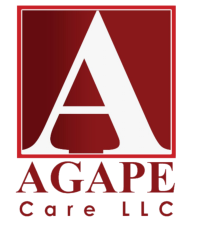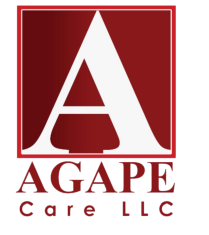How to Manage Medications for Aging Parents: Essential Tips for Seniors and Family Caregivers
Managing medications for aging parents can be challenging, especially when they’re taking multiple medications for different health conditions. Many seniors take prescription and over-the-counter medications daily, making it essential to develop a plan to manage their medications effectively. Ensuring that your loved one takes their medication as directed helps prevent complications, improves their quality of life, and supports their overall well-being.
Understanding your parent’s medication needs is the first step in providing proper care. Regular consultations with health care providers, including their primary care provider and pharmacist, can help you stay informed about any changes to their prescription medications. Maintaining a comprehensive list of all the medications your loved one takes, including over-the-counter drugs and supplements, ensures everyone involved in their care is on the same page. This can help prevent negative drug interactions and ensure medication adherence.
Once you have a clear understanding of their medication regimen, organizing and managing their medications becomes easier. Tools like a pill organizer and setting up reminders can help older adults remember to take their medication on time. Monitoring for side effects or interactions is also crucial, as certain medications can have adverse effects. With careful planning, you can better manage your loved one’s medication and ensure they take their medications as prescribed.
Understanding Medication Needs for Seniors and Aging Parents
Consulting with Health Care Providers and Pharmacists
Regular consultations with health care providers are essential in managing medications for seniors. Schedule appointments with your parent’s primary care provider to review all their prescription medications and over-the-counter drugs. This helps you understand the purpose, dosage, and potential side effects of each medication. Your pharmacist can also provide valuable insights into possible drug interactions and offer guidance on how different medications should be taken. Keeping an open line of communication with the care team ensures your elderly parent’s medication needs are managed safely and effectively.
Reviewing Prescription Medication and Over-the-Counter Drugs
It’s important to regularly review all of the medications your elderly parent is taking. Go through their prescription drugs, over-the-counter medications, and any supplements to understand why each one is needed. Certain medications may no longer be necessary, and it’s essential to discuss this with their primary care provider to avoid unnecessary medications. This process can help reduce the number of medications and minimize the risk of adverse effects.
Keeping an Updated List in the Medicine Cabinet
Maintaining an updated list of all the medications your parent takes is crucial for effective medication management. This list should include all prescription medications, over-the-counter drugs, and supplements, along with dosages and times of administration. Keep this list of medications in the medicine cabinet for easy access during doctor visits, pharmacy trips, and emergencies. An accurate medication list simplifies managing multiple medications and ensures that everyone on the care team is aware of what medications your loved one is taking.
Organizing and Managing Medication for Aging Parents
Using a Pill Organizer to Better Manage Medications
A pill organizer can be an invaluable tool for managing medications for seniors. Organizers come in various formats, from simple daily pill boxes to those with enough compartments for multiple medications throughout the day. Using a pill organizer helps your elderly parent take their medication on time and reduces the risk of common medication mistakes, like taking the wrong pill or dosage. If your loved one takes multiple medications, a well-organized pill organizer can help them better manage their medications with ease.
Setting Up Medication Reminders for Senior Care
Medication reminders can greatly help seniors remember to take their medications as prescribed. Set up reminders using phone alarms, medication management apps, or physical calendars to alert your loved one when it’s time to take their medication. Some apps allow you to set multiple reminders and track medication adherence, ensuring that medications are taken consistently. These reminders are especially helpful for older adults who have trouble remembering to take their medication on time.
Monitoring Side Effects and Drug Interactions
Monitoring your elderly parent for side effects or interactions is a key part of medication management. Pay close attention to any changes in their behavior, mood, or physical condition. If you notice any unusual symptoms, consult their health care provider or pharmacist to discuss the potential side effects of their medications. Documenting any side effects in a journal can be useful during doctor visits, ensuring that adverse reactions are addressed promptly.
Ensuring Proper Dosage and Administration of Medications for Seniors
Following Correct Dosage and Timing for Medications
Ensuring that your parent takes their medications at the correct dosage and time is essential for their effectiveness. Double-check the dosage instructions provided by their doctor or pharmacist, and make sure medications are taken according to the care provider’s directions. Some medications need to be taken with food, while others should be taken on an empty stomach. Keeping a schedule or medication chart can help manage these details and ensure proper administration of each drug.
Reading Prescription Labels and Instructions Carefully
Reading labels and instructions on all medications, including prescription and over-the-counter drugs, is crucial to avoid mistakes. Labels may include important information on storage, dosage, and potential side effects. For example, certain medications should be kept in a cool, dry place, while others may need to be refrigerated. If you’re unsure about any instructions, ask the pharmacist for clarification to ensure safe and effective use.
Handling Missed Doses and Removing Expired Medications
If your elderly parent misses a dose, consult the instructions or contact their health care provider to determine the best course of action. Some medications should not be doubled up, while others can be taken as soon as they remember. Additionally, regularly check for expired medications in your parent’s medicine cabinet, as taking expired medications can be ineffective or even harmful. Remove any expired medications to keep their medicine cabinet safe and up-to-date.
Addressing Medication Challenges and Seeking Help for Aging Parents
Dealing with Medication Resistance in Older Adults
Medication resistance can be a common issue for older adults. Sometimes, an elderly parent may not want to take their medication due to side effects, forgetfulness, or a lack of understanding. Approach this issue with patience and compassion. Explain the benefits of each medication and how it helps their health. If side effects are a concern, discuss alternatives with their health care provider to find a solution that works for them.
Communicating with Doctors, Pharmacists, and Caregivers
Effective communication with the entire care team, including doctors, pharmacists, and other caregivers, is essential for safe medication management. Regularly discuss any concerns or questions about your parent’s medications with their health care providers. Pharmacists, in particular, can provide valuable insights into drug interactions, proper storage, and correct dosages. Ensuring open communication with everyone involved in your parent’s care can help prevent mistakes and improve health outcomes.
Considering Professional Home Care and Pharmacy Services
If managing medications feels overwhelming, consider professional home care or pharmacy services. Home healthcare providers can assist with medication management, ensuring medications are taken correctly and on schedule. Many pharmacies also offer delivery and medication coordination services, making it easier to get refills on time and ensure medication adherence. Professional support can greatly reduce the stress of managing multiple medications for your loved one.
Conclusion: Effective Medication Management for Aging Parents
Effective medication management for aging parents requires careful planning, organization, and attention to detail. By understanding their medication needs, organizing and managing their medications, ensuring proper administration, and addressing challenges, you can provide the best care possible. This approach not only safeguards their health but also improves their quality of life.
If managing medications on your own is challenging, professional assistance can be invaluable. At Agape Care LLC, we specialize in compassionate home care services tailored to your family’s needs. Contact us today to learn how we can support you and your loved one in ensuring their medication is handled properly. Your loved one’s well-being is our top priority.


